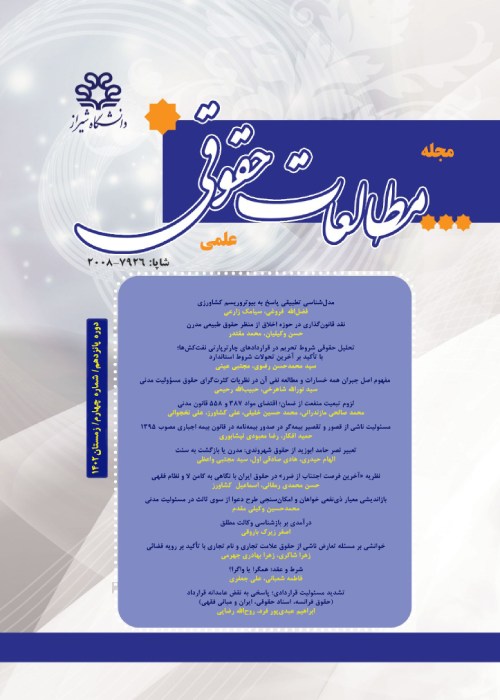Rights Arising from Late Payment of Monetary Obligations
Undoubtedly, money stands as one of the most practical human credit inventions, playing a crucial role not only in economics but also in law. Among various obligations in transactions and lawsuits, monetary obligations hold a special position as they involve the payment of sums of money. Money's unique liquidity-providing role, ease of use, and acceptance by individuals set it apart from other goods. Today, money is not merely a means of exchange or a measure of value but is considered a valuable capital and asset in itself, capable of generating profits. When a debtor fails to fulfill their monetary obligation on time, the creditor incurs losses due to the devaluation of money and the lost opportunity to utilize their funds profitably. Such compensation to the creditor is based on two principles: 1. Compensating the creditor for their lost opportunity, and 2. Preventing the debtor from unjust enrichment by utilizing the money without fulfilling their obligation. Consequently, late payment of monetary obligations gives rise to three distinct rights for the creditor: liquidated damages if agreed upon by the parties, damages resulting from money devaluation, and interest as compensation for the loss of use of money. In the Iranian legal system, certain concepts like interest are not recognized as damages and cannot be compensated, leading to discrepancies between primary and secondary monetary obligations. To address this issue, this article delves into the three types of damages, providing a descriptive and analytical approach, and analyzes the Iranian legal situation and judicial practice. The findings of this research highlight that while achieving the principle of full compensation requires recognizing various rights, the Iranian legal system only accepts the devaluation of money under strict conditions and does not acknowledge interest. The limited scope for individuals to agree on the amount of damages also hinders full compensation. However, given the modern economic landscape, accepting these rights becomes essential for achieving full compensation in monetary obligations. As a solution, this article proposes amending Article 522 of the Civil Procedure Code to properly compensate for money devaluation. Additionally, based on the comparative findings of the opportunity cost criterion, a flexible approach is suggested to determine an appropriate interest rate for compensating the loss of use of money for the creditor, encompassing both subjective and objective criteria. In conclusion, this study sheds light on the rights arising from late payment of monetary obligations through a thorough analysis of the Iranian legal and judicial system. To achieve the principle of full compensation, the recognition of devaluation of money and the acceptance of interest in certain cases seem indispensable. One proposed solution is to introduce a more comprehensive article acknowledging and compensating for the devaluation of money based on the real rate of inflation in the market, announced by relevant institutions. This proposal aims to create a clearer and fairer framework for calculating damages related to money devaluation. By considering the real rate of inflation, the compensation for the creditor's loss can accurately reflect the economic realities. Moreover, a reevaluation of the restrictions on individuals agreeing on the amount of damages is crucial. Allowing parties to agree on liquidated damages can enhance contractual autonomy and provide a more effective means of achieving full compensation. However, it is essential to establish appropriate limits and safeguards to prevent potential abuse. Beyond the Iranian legal system, this study also considers the broader perspective of international practices in compensating for late payment damages. By examining the approaches taken by different legal systems, it becomes evident that flexible and adaptive solutions are crucial for addressing the intricacies of monetary obligations and late payment compensation. Furthermore, the concept of interest as a means of compensating the loss of use of money should not be disregarded. Interest serves as an important tool to achieve the principle of full compensation and ensure fairness between parties in monetary obligations. While its recognition and implementation require careful consideration, embracing the economic realities of the modern world demands a more nuanced approach. In conclusion, a comprehensive understanding of the rights arising from late payment of monetary obligations is crucial to establish a just and efficient legal framework. Embracing the principles of full compensation, contractual autonomy, and economic realities can pave the way for meaningful reform. By reevaluating existing legal provisions and aligning them with international best practices, the Iranian legal system can better address the complexities of late payment damages and protect the rights of all parties involved.
- حق عضویت دریافتی صرف حمایت از نشریات عضو و نگهداری، تکمیل و توسعه مگیران میشود.
- پرداخت حق اشتراک و دانلود مقالات اجازه بازنشر آن در سایر رسانههای چاپی و دیجیتال را به کاربر نمیدهد.



